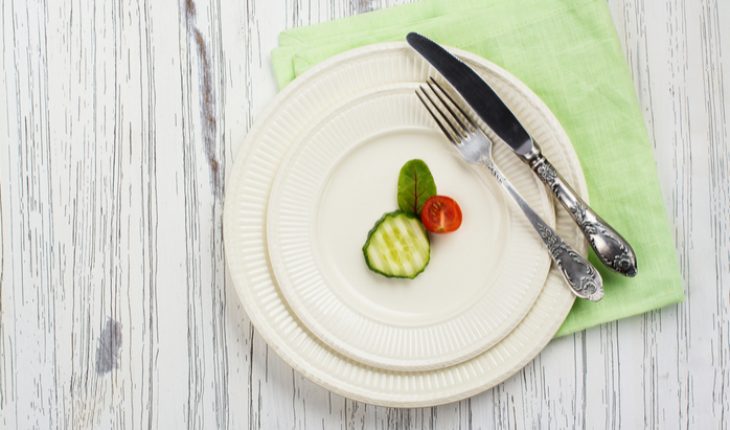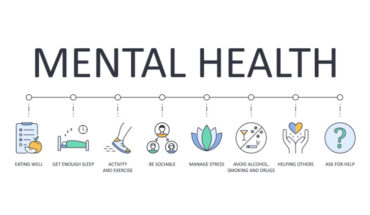At the start of Eating Disorders Awareness Week, two experts in eating disorders discuss the problem of social media and bloggers who can help to promote poor body self-image. Alexia Dempsey is an Eating Disorders Specialist at the Priory Hospital Roehampton in South-West London.
“Selfies, self-image, self-esteem and the “self” is very much at the heart of social media today. I spend a lot of time urging people with eating disorders to be more critical of the bloggers they look at, because they are promoting their lifestyles on social media and are often sponsored by the products they are using. They are not their readers’ “friends”, although the photo and video updates multiple times of the day may make it feel like it. Food and exercise bloggers and celebrities are often not experienced or registered health care professionals, and yet their influence on vulnerable young girls is enormous.
Whether clean eating, fitspiration or the virtues of veganism, many celebrities and “vloggers” use social media sites to promote their food choices, exercise regimes and toned bodies. For people struggling with low self-esteem and body confidence, the constant timeline of body and food-related posts may cause heightened levels of stress and anxiety around what they perceive as the “perfect lifestyle”.
A common theme we have seen is where school friendship groups decide to follow someone they see on Instagram or Facebook. Most of the group gives up shortly afterwards. However, those who are perfectionist and anxious, with low self-esteem, may adhere to the diet to an extraordinary degree and develop a disorder.
A common theme we have seen is where school friendship groups decide to follow someone they see on Instagram or Facebook. Most of the group gives up shortly afterwards. However, those who are perfectionist and anxious, with low self-esteem, may adhere to the diet to an extraordinary degree and develop a disorder.
It is astonishing how many of our patients have Instagram accounts and follow their dietary gurus on social media, believing that what is written is gospel.
We have had girls come in saying they are drinking green vegetable juices to oxygenate their blood, or eating spiralised courgette pasta with avocado, which cannot be considered a nutritionally complete meal.
They have been told all sugar is bad and are drinking lots of green or diuretic teas. I was informed by a patient that ginger cures cancer. It’s all come from the internet and this advice is dangerous, it’s not scientifically accurate or based on robust evidence.
It is important to recognise that the causes are eating disorders are varied and complex and that it is unlikely that social media itself causes an eating disorder. However research does suggest that exposure to slender media images of women and perceived pressure from the media to be thin, negatively affects female body image and emotional well-being.”
Gabriele Malinauskaite, Eating Disorder psychotherapist at the Priory Hospital in Woking, says:
“The overriding message from the media all too often suggests that we need to change something about ourselves in order to be loved or successful. In particular, if we have thin, fit bodies our lives will be perfect. A recent study shows that the number of admissions to hospital of patients with potentially life-threatening eating disorders has almost doubled over six years. The figures show that admissions with a primary or secondary diagnosis of an eating disorder reached a peak of 13,885 in April 2017, up from 7,260 in 2010 -11. This latest data shows admissions are the highest they have been in a decade.
Society dictates social values and the meanings of physical appearance – how one should look and should not look. It is deeply concerning that children might start judging their appearance and whether they can ‘live up’ to imposed rules – often exacerbated by the media – from a young age. And yes, this in turn can deeply affect their sense of self-worth.
Increasingly, we are encouraging our patients to explore how much of an impact social media has on them, especially their body image, self-esteem and self-worth. We spend some time in specialised groups identifying the most helpful and healthiest ways of managing time on social media.
Increasingly, we are encouraging our patients to explore how much of an impact social media has on them, especially their body image, self-esteem and self-worth. We spend some time in specialised groups identifying the most helpful and healthiest ways of managing time on social media.
Eventually, we hope that, through exploring the impact, and encouraging the patient to be more reflective and critical, they will employ a wider perspective and find new ways of processing the information in society and on social media – for some patients, this might mean taking a pause whereas for others it might mean deleting their social media apps altogether for the time being. The choice often comes with a sense of a relief, and focus is diverted to one’s own challenges and difficulties as opposed to constant comparison and aspiration for something we do not have.
A disturbance in body image is a major and widespread phenomenon in society and can be linked with a variety of psycho-social difficulties and disorders including depression, social anxiety, low self-esteem.
As such, a poor body image is a risk factor for someone developing disordered eating and therefore, a positive, healthy and realistic view of one’s body image is something that we all – parents, grandparents, teachers, coaches and friends – have a responsibility to promote.”
- Early onset dementia more common than previously reported - 26th July 2024
- Children’s Exposome Linked to Serum Metabolite Changes - 24th July 2024
- Is Melatonin the wonder drug of anti-aging? - 22nd July 2024






